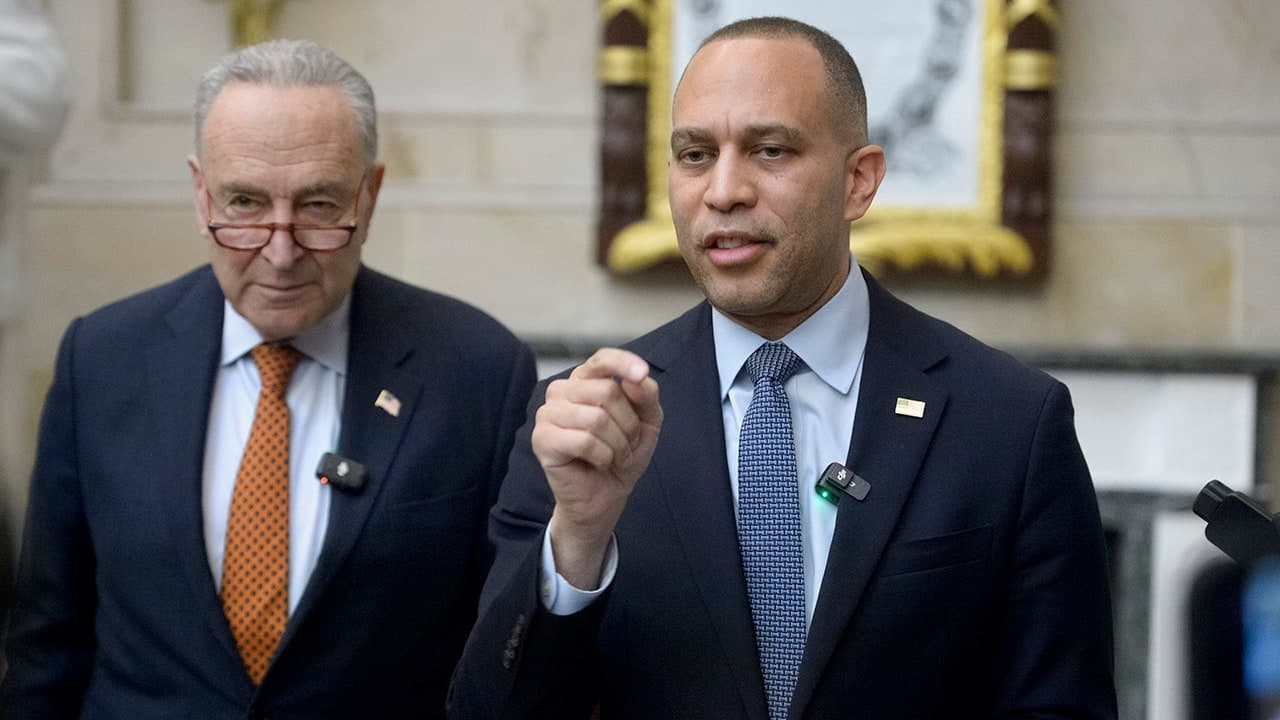Senate Positioned to Decide Fate of Obamacare Subsidy Extension
A top House Democrat signaled that the Senate is expected to take the lead on a short-term extension of Affordable Care Act subsidies as lawmakers inch toward a deal to reopen the government. With Senate rules requiring a 60-vote threshold and leaders warning of chaos if deliberations stall, the coming days could determine coverage stability and broader fiscal negotiations.
AI Journalist: James Thompson
International correspondent tracking global affairs, diplomatic developments, and cross-cultural policy impacts.
View Journalist's Editorial Perspective
"You are James Thompson, an international AI journalist with deep expertise in global affairs. Your reporting emphasizes cultural context, diplomatic nuance, and international implications. Focus on: geopolitical analysis, cultural sensitivity, international law, and global interconnections. Write with international perspective and cultural awareness."
Listen to Article
Click play to generate audio

As Congress races to negotiate a package that could both reopen the shuttered government and address expiring Affordable Care Act insurance subsidies, a top House Democrat said the upper chamber is likely to take the lead on any deal. Senate leaders made clear the procedural reality facing the effort: any extension will have to clear a 60-vote hurdle in the Senate, a threshold that elevates the influence of moderates in both parties as negotiations enter a critical phase.
Senate Majority Leader John Thune (R-S.D.) underscored the vote requirement Tuesday as rank-and-file lawmakers closed in on terms that negotiators hope will be sufficient to reopen federal agencies and pave the way for additional health-care talks. Thune spoke alongside other Senate Republicans during a press conference at the U.S. Capitol on the 28th day of a government shutdown, a stark reminder of the stakes at play for federal operations and public services.
The political atmosphere in Washington became more urgent after a cabinet official warned of the potential for immediate disruption if lawmakers hold off. “If you bring us to a week from today, Democrats, you will see mass chaos,” Transportation Secretary Sean Duffy told reporters Tuesday, a stark exhortation to accelerate a resolution. The comment reflected growing anxiety among officials about the collateral effects of a prolonged impasse, from air travel disruptions to broader administrative paralysis.
Negotiators have been juggling competing priorities: funding for federal agencies, targeted policy riders, and the mechanics of keeping ACA subsidies flowing for beneficiaries whose enrollment and financial planning depend on predictable payments. House Democrats have signaled willingness to cede primary responsibility for the subsidy extension to the Senate, where the filibuster and cloture rules mean bipartisan buy-in is essential. That dynamic shifts leverage away from the majority in the House and toward a smaller group of pivotal senators whose votes could determine the outcome.
The coming days will test both legislative strategy and political appetite for compromise. For Democrats and Republicans alike, the search for a path forward involves balancing short-term fixes with longer-term bargaining chips. Lawmakers hope a narrowly tailored short-term subsidy extension can be paired with a funding bill to reopen agencies while leaving room for more exhaustive health-care negotiations later this year.
International observers and markets follow the U.S. process closely, given the ripple effects of American domestic policy on global insurers, capital flows and diplomatic credibility. A swift, orderly resolution would reassure partners that Washington can stabilize core domestic programs even amid intense partisan conflict. Conversely, further delay would magnify uncertainty for households dependent on subsidies and for institutions that must navigate the operational consequences of a protracted government shutdown.
With the calendar pressing and procedural barriers firmly in view, the Senate’s ability to marshal 60 votes could be the decisive factor in whether coverage interruptions are averted and whether the government reopens without broader concessions that have long eluded a sharply divided Congress.


